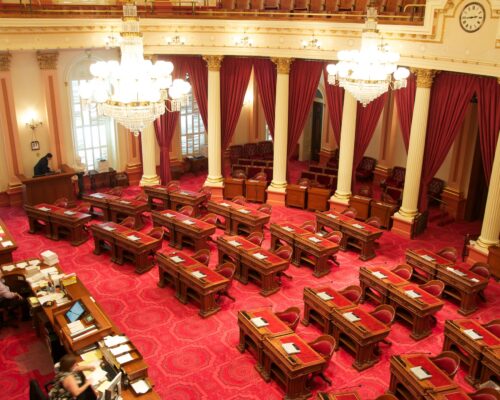
Budget
During the first week of June, the Assembly and the Senate announced an agreement on the State Budget ahead of the June 15 deadline. The deal would reject many of the cuts proposed by the Governor in his May Revise, protecting health care, social services, and K-12 education. The Legislature is not expected to enter a conference committee to hash out differences, because they’ve already come to an agreement. While the Legislature’s version, like the Governor’s, relies on projected federal funding to cover COVID-19 costs, they also plan to use a series of deferrals and other fiscal tools to avoid cuts.
Legislation
Tuesday, June 2nd, the Assembly Appropriations Committee met and heard 306 bills, most of which were referred to as the “suspense file,” which was heard on Wednesday, June 3rd. The Appropriations Committees review all bills with any fiscal impact after passage by a policy committee. Because of the massive workload that crosses all jurisdictional lines, Appropriations operates differently than policy committees. Testimony tends to be more succinct and centers on fiscal implications. The Department of Finance sits at the witness table during hearings to provide the Administration’s official fiscal estimate. The focus of the committee is supposed to be on sound fiscal policy, however, many policy debates carry-over into the Appropriations committee hearings and final decisions are made by the Chair and the Speaker of the Assembly.
The “Suspense File” is a unique feature of the Appropriations Committee, to which the Assembly committee sends any bill with an annual cost of more than $150,000 (any fund). The Senate sends any bill with an annual cost of $50,000 or greater to the suspense file. Suspense bills are then considered at one hearing, and no testimony is presented – author or witness – at the Suspense File hearing.
Appropriations Chair, Lorena Gonzalez made the decision to not hear several bills in committee, including AB 2991, by Assemblymember Miguel Santiago (D-Los Angeles), which is now dead. Santiago’s bill would have extended large development projects’ ability to qualify for streamlining under the California Environmental Quality Act by extending AB 900, which allowed expedited CEQA permitting by getting the Air Resources Board to certify the projects would not produce a net increase in greenhouse gases. New stadiums for the Golden State Warriors, Sacramento Kings and Los Angeles Clippers have all benefited from the law.
Habitat for Humanity’s sponsored bill, AB 3155 by Assemblymember Rivas, was also held in committee. The bill would have removed legal barriers that discourage small building forms for homeownership, in small (10 or fewer unit projects). Also held, AB 2580 (Eggman) allowing for the conversion of hotels and motels into residential housing. Habitat supported this measure as well. Both bills had fierce labor opposition, which despite good policy, ultimately led to their demise. Discussions are ongoing to determine how to ensure the policies within each of these important measures move forward. Luckily, many other housing bills passed the committee, such as two CEQA reform bills by Assemblymember Friedman, AB 2323 and AB 3279. The Assembly is rumored to be putting together a housing package soon, similar to that of the Senate, that will be released in the next week or two. All bills that passed the Assembly Appropriations Committee this week will be heard on the Assembly floor as early as Monday, June 8th.
